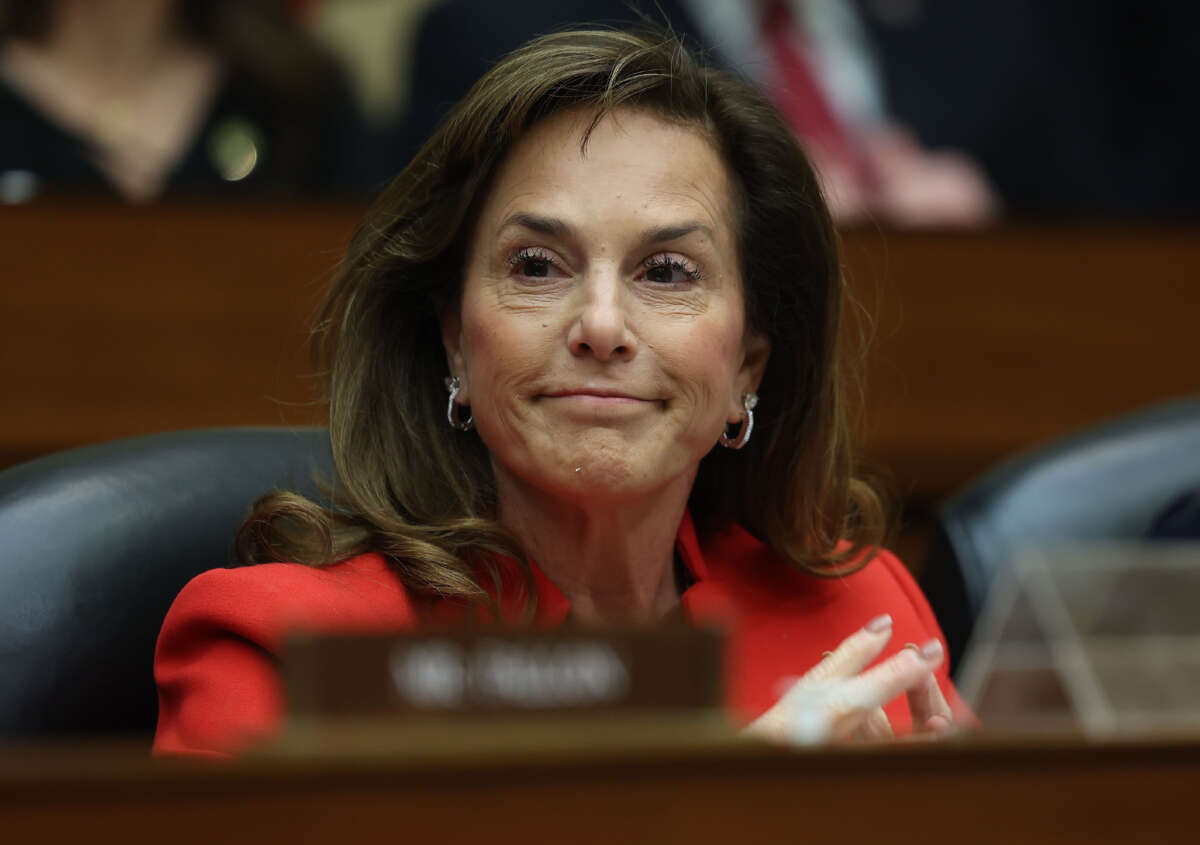Honest, paywall-free news is rare. Please support our boldly independent journalism with a donation of any size.
In a 210-189 vote on Thursday, the House passed a measure that would block the implementation of the Biden administration’s SAVE Student Loan Forgiveness program.
The resolution, H.J Res. 88, includes a provision that seeks to eliminate student loan repayment options tied to income, and would decimate the Biden administration’s new student loan forgiveness program.On Monday, the Office of Management and Budget said that the president would veto the disapproval resolution.
“This resolution would put our record economic recovery at risk by reducing the consumer spending of millions of borrowers returning to repayment after a more than three-year pause, and it would be particularly harmful for low- and middle-income borrowers, community college students, and borrowers who work in public service,” the Office of Management and Budget said in a statement.
In June, the Supreme Court ruled against the administration’s plan to forgive up to $20,000 in federal student loans per person. The Biden administration launched the SAVE program to pursue “an alternative path to deliver debt relief to as many student loan borrowers as possible, as quickly as possible in the wake of the Supreme Court’s decision on the administration’s student debt relief plan.”
The SAVE program is an income-driven repayment plan that would calculate payments based on a borrower’s income and family size. The plan would cut many borrowers’ monthly payments to zero and prevent balances from growing because of unpaid interest. Under the SAVE plan, a single borrower who has earnings less than $15 an hour would not have to make any monthly payments.
“The passage of today’s resolution is a sobering reminder that many members of Congress stand against Black America as we embark on a journey towards financial freedom,” Wisdom Cole, national director for youth and college division of the NAACP, said in a statement.
The NAACP has been at the forefront of the movement to cancel student debt and recently began a partnership with the Department of Education and Civic Nation to educate Black Americans on the income-driven repayment options available to them.
“In the absence of broad-based relief, the SAVE program serves as a crucial tool in advancing the economic liberation that we seek,” Cole said. “Any attempt to undermine progress on student debt cancellation is a direct attack on Black Americans of all ages.”
In September, a COVID-era pause on federal student loan payments came to an end and interest began accruing. Some 40 million borrowers were forced to resume payments in October. Black borrowers were particularly harmed by the start of loan repayments. Black Americans who hold bachelor’s degrees have an average of $52,000 in student loan debt and owe an average of $25,000 more in student loan debt than white college graduates, according to the Education Data Initiative.
Because of the racial wage gap that keeps Black Americans in debt, the Biden administration launched an initiative in 2021 to advance educational equity, excellence, and economic opportunities for Black Americans. A fact sheet drafted by the Biden administration on Black college graduates and the student debt gap detailed how income-driven repayment may help Black graduates struggling to manage debt.
The SAVE plan would, on average, cut the total lifetime payments per dollar for Black, Latinx, American Indian and Alaska Native borrowers in half.
“Let’s make one thing clear — if you are a candidate seeking the vote of a young Black American in 2024, voting in favor of this resolution sends a clear message that you are against Black progress and all aspiring Americans,” Cole said. “Elections are around the corner, and we’re watching. It’s time that every hardworking America is freed from the shackles of student debt.”
A terrifying moment. We appeal for your support.
In the last weeks, we have witnessed an authoritarian assault on communities in Minnesota and across the nation.
The need for truthful, grassroots reporting is urgent at this cataclysmic historical moment. Yet, Trump-aligned billionaires and other allies have taken over many legacy media outlets — the culmination of a decades-long campaign to place control of the narrative into the hands of the political right.
We refuse to let Trump’s blatant propaganda machine go unchecked. Untethered to corporate ownership or advertisers, Truthout remains fearless in our reporting and our determination to use journalism as a tool for justice.
But we need your help just to fund our basic expenses. Over 80 percent of Truthout’s funding comes from small individual donations from our community of readers, and over a third of our total budget is supported by recurring monthly donors.
Truthout has launched a fundraiser to add 460 new monthly donors in the next 8 days. Whether you can make a small monthly donation or a larger one-time gift, Truthout only works with your support.
